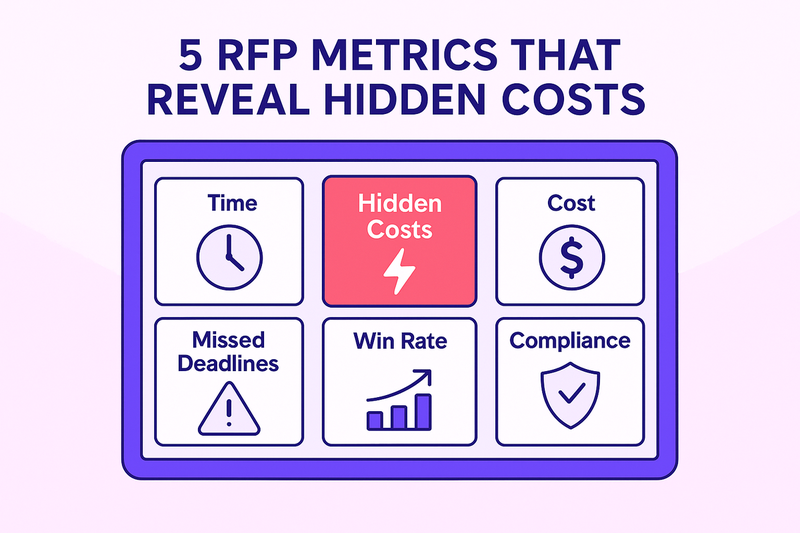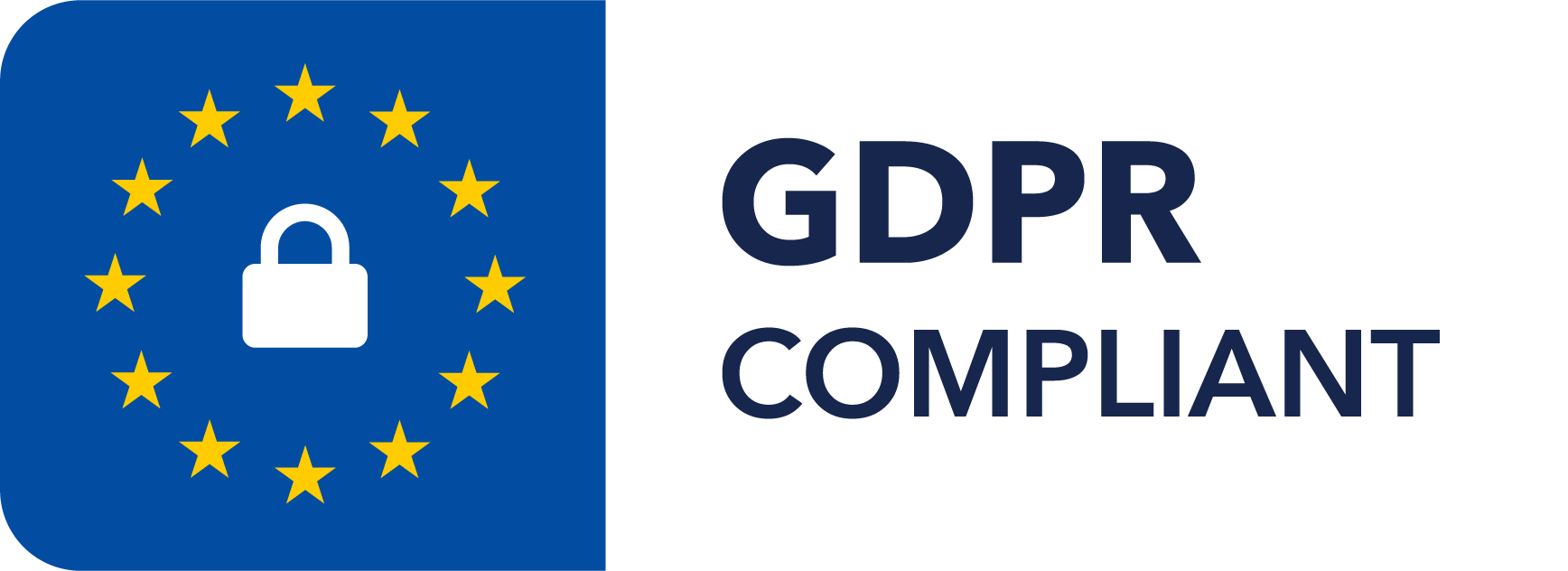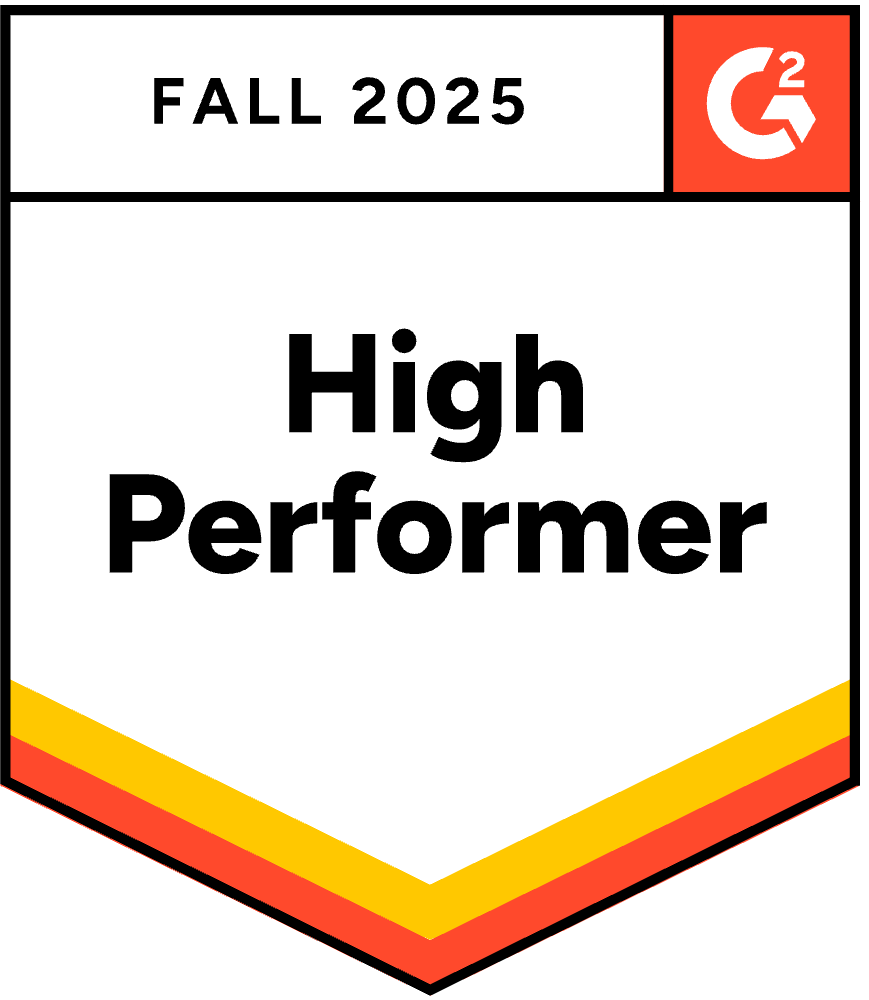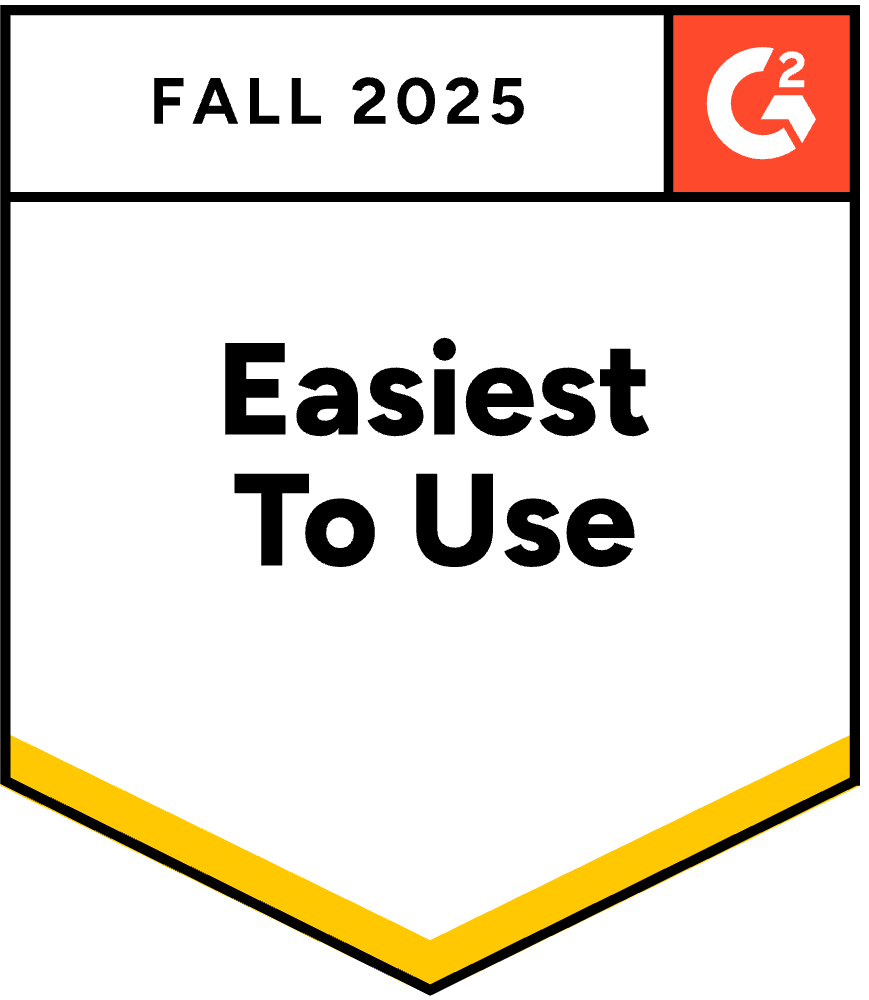What If Your Best RFP Answers Weren’t Trapped in Slack?
June 18, 2025
By
Evie Secilmis
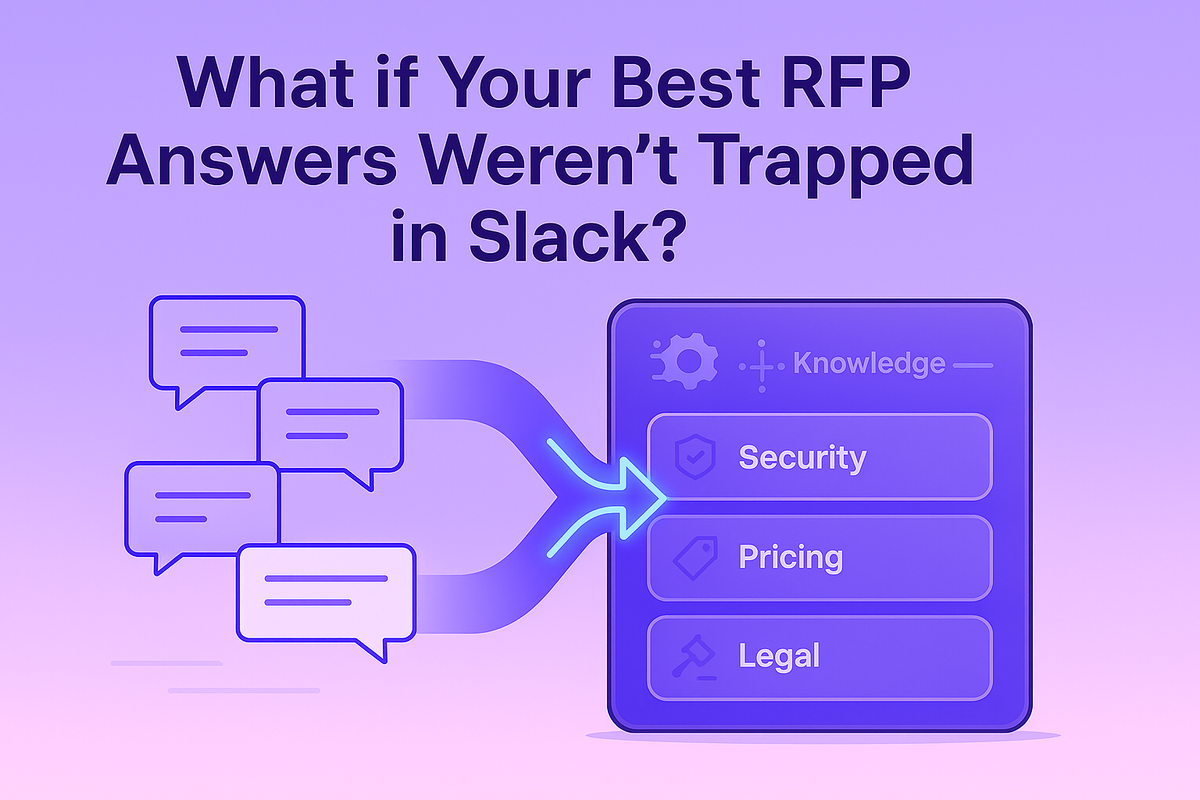
What If Your Best RFP Answers Are Trapped in Slack?
Let’s be honest: some of the smartest, most effective RFP responses your team has ever written are buried deep in a Slack thread or lost in someone’s inbox.
And every time someone asks, “Didn’t we answer this already?” or “Where’s that wording we used for Acme?”—you lose time, consistency, and trust.
It’s not just inefficient. It’s a silent deal killer.
The Problem: Great Answers Shouldn’t Be One-and-Done
Sales engineers, compliance leads, and proposal managers craft incredible answers under pressure—only for them to disappear after one use.
These responses get trapped in DMs, old docs, or static Q&A spreadsheets that no one remembers to check.
Which means every new RFP starts with a game of hide-and-seek.
The result:
- Inconsistent messaging
- Slower turnaround
- Higher legal and compliance risk
- Burned-out subject matter experts
When knowledge isn’t shared intentionally, you’re stuck reinventing the wheel every time.
And let’s not forget: these delays don’t just create internal friction—they create buyer friction. When your responses are slow or inconsistent, your prospect notices. And they move on.
The Hidden Cost of Lost Knowledge
Every redundant response isn’t just wasted time—it’s wasted opportunity.
The average mid-market RFP can take up to 40+ hours to complete. Losing even a day to duplicate work can delay a deal cycle by 10% or more.
That lost time compounds across dozens of RFPs every year:
- Deals stall while teams chase down past answers.
- Legal and security teams re-review content that hasn’t changed.
- Proposal managers spend hours formatting instead of refining strategy.
Multiply that across your fiscal year—and the cost isn’t just operational. It’s strategic.
Every redundant task steals time from prospecting, enablement, and relationship-building.
The Solution: Make Knowledge Usable, Not Just Stored
RFP software isn’t just about speed—it’s about surfacing your best answers, exactly when and where they’re needed.
With Iris, teams can:
- Use Ask Iris to pull up high-performing answers from previous submissions.
- Tag content by product line, buyer persona, region, or industry.
- Track where, how often, and how successfully an answer has been used.
- See what answers are approved, in use, or need review—all in one place.
It’s not about hoarding information—it’s about unlocking it.
Why Slack Can’t Be Your Source of Truth
Slack is amazing for conversation. It’s terrible for content management.
When your only knowledge base is past threads and @mentions, here’s what happens:
- New hires can’t find what they need.
- SEs get pinged repeatedly for the same info.
- Old answers get copied and pasted without context.
- Outdated content gets reused by accident—risking legal, brand, and trust issues.
Eventually, your process breaks under the weight of its own chaos.
What Modern Knowledge Management Looks Like
Modern proposal teams don’t treat knowledge as static—they treat it as living data.
With Iris, every approved answer is:
- Traceable and searchable.
- Scored for performance.
- Sourced from a single, verified repository.
That means your team isn’t building a library—they’re building a competitive advantage.
This is what next-generation knowledge management looks like: real-time syncing, version control, and AI-powered retrieval that turns every past proposal into a reusable asset.
From Chaos to Continuity
Smart teams don’t just centralize information—they turn it into a system.
That means:
- AI-powered suggestions based on similar deals.
- Auto-drafted responses with the right voice and tone.
- Clear ownership workflows across legal, sales, and presales.
- Built-in collaboration so multiple contributors can work in parallel.
And when something changes—like a new product launch or compliance update—everyone’s working from the same, updated source.
With the right foundation, your best answers don’t just live in the past—they power your future deals.
The Ripple Effect: When Knowledge Flows Freely
When information flows easily, productivity follows. Teams stop tripping over each other and start compounding value.
Here’s what happens when your content is connected, consistent, and AI-assisted:
- Sales cycles shorten because every answer is ready and reliable.
- Compliance reviews happen faster with built-in version control.
- New hires ramp faster because institutional knowledge is accessible.
- Leadership gains visibility into what’s working—without another meeting.
When teams trust their systems, they can finally trust their process. And that confidence shows up where it matters most: in front of the buyer.
Final Thought: It’s Time to Liberate Your Knowledge
If your best answers are locked away in Slack, Google Docs, or someone’s memory—you don’t need more tools.
You need a system.
One that’s searchable. Trackable. Collaborative. And built for scale.
The next time someone asks, “Didn’t we already answer this?”—you should be able to say:
Yes. And here it is.
→ Ready to scale what’s already working? Book a walkthrough at heyiris.ai
Share this post
Link copied!



.jpg)
